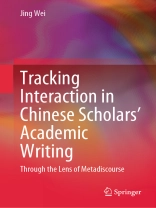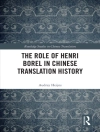This book tracks changes in the use of metadiscourse in Chinese scholars’ English and Chinese research articles, discusses how these changes reflect changes in Chinese scholars’ interactions with their peers in China and outside China, and analyzes how Chinese scholars are responding to changes in the academic context that embrace and shape rhetorical practices in the academic world.
Around the turn of the twenty-first century, the Chinese government declared the goal of “enhancing international soft power, ” and one important way to achieve this goal is to promote China’s global academic influence. China has indeed made remarkable strides in terms of academic output by publishing Chinese scholars’ research papers and monographs around the world. However, “international soft power” means more than just the export of papers or books; it means connecting to and participating in the academic world. For this to happen, Chinese scholars must get to know their international counterparts, understand their rhetorical preferences, and be willing (and able) to accommodate their needs.
विषयसूची
Introduction.- Metadiscourse: Different Approaches and Perspectives.- Metadiscourse Research: Theoretical Frameworks and Empirical Studies in China.- Metadiscourse: Definition and Categorizations.- Interaction in Chinese Scholars’ English Research Articles.- Interaction in Chinese Scholars’ Chinese Research Articles.- Conclusion.
लेखक के बारे में
Jing Wei holds a Ph D in Applied Linguistics and is an Associate Professor and MA supervisor at Southwest University in China. She has been doing English as a Foreign Language/Chinese as a Foreign Language teaching and English for Academic Purposes research in China and Europe for over 20 years (e.g. 2007-2009 at Katholieke Universiteit Leuven, Belgium; 2022-2023 at the University of Cambridge, UK). She has published research articles and monographs in both Chinese and English with prestigious publishers.












